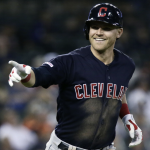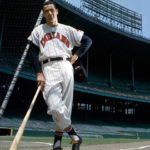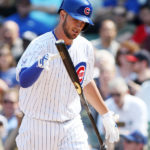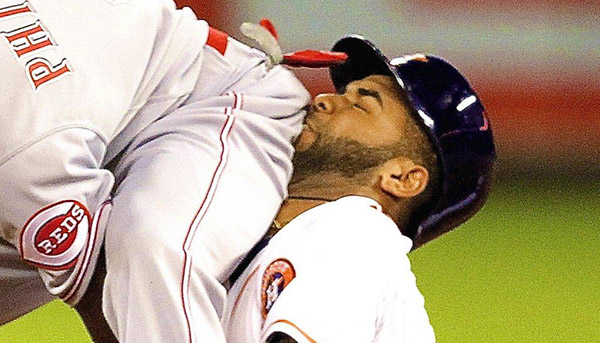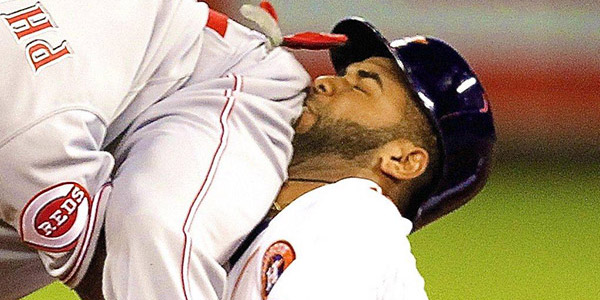Sinclair Broadcast Group Buy into Regional Sports Networks a Gamble
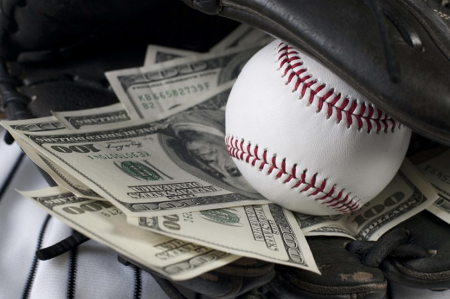 Imagine if gambling and reduced viewership were the future of baseball?
Imagine if gambling and reduced viewership were the future of baseball?
Take a closer look at baseball back at the turn of the 20th century. The days when the game was vituperative and truculent, yet continued to not only grow in popularity but create new money-making opportunities for its owners, and reliable, well-paid employment for its players.
Those days, the new stars emerging would be among the earliest inductees into the future Hall of Fame. Honus Wagner. Ty Cobb. Christy Mathewson. Cy Young. Three-Fingered Mordecai Brown. Rube Waddell. Napoleon Lajoie, and many other talented athletes who played as if their lives were on the line every game. This was because baseball meant a good life to immigrants and farm boys who had few other chances for upward mobility. If they lost their spot on their baseball team, they might have to work for the railroads as day laborers, if they were lucky enough to get the job. Or worse, go back to the farm. Baseball was everything to these men.
Which is why these early 20th-century baseball games were such hotly contested competitions offering fans hours of riveting entertainment. It’s also why fans wanted to get in to the stadiums, see the games and, in defiance of management, gamble on the outcome.
The gamblers were, in many cases, elegantly attired, long-whiskered pot-bellied men who held court from field-level boxes. Smoky cigars and spittoons colored the atmosphere as these men bundled greenbacks together and handed out betting slips to fans gambling on sums of money or their next meal.
Ban Johnson was one of the most powerful men in baseball after his American League merged with the National League in 1903. Johnson was vehemently anti-gambling, going so far as to ban gambling from all ballparks after 1903. But gambling would continue to bedevil Johnson until after the Black Sox Scandal of 1919.
This past irreverence for the integrity of the game may yet be the future of tomorrow’s baseball if the Sinclair Broadcasting Group has anything to say about it. And they do.
What is the Sinclair Broadcast Group?
Sinclair Broadcast Group owns approximately 200 local television stations around the country. It is a leading voice for conservative views. Sinclair has defended a host of conservative viewpoints and scripted prepared comments for anchors on all their stations. The effect is different faces in 200 towns around America all speak with the same alt.right voice. That’s Sinclair Broadcast Group.
They have purchased 21 (FOX) Regional Sports Networks previously owned by Disney in the past month. Once the deal passes Department of Justice muster, Sinclair will own the broadcast television and streaming rights to 14 MLB teams, under the rubric of FOX Sports Network.
Sinclair Broadcast Group plans to roll out the latest technology. It’s a system called ATSC 3.0. Sinclair will leverage its broadcast signal by adding targeted advertising to viewers as well as filtering in data services within the same bandwidth.
This technology will not be effectively implemented for another two years. It will allow Sinclair or another broadcaster to provide a wealth of sports information on-screen. Much as ESPN already does on their network. The idea is that gambling choices will be braided into the information display and offered as an option for those who want to place bets on different segments of a game.
So, unlike in the early 1900s, gamblers won’t have to set up shop at the ballparks. Everything will be done digitally through television broadcasts and streaming products so the option to gamble will only be a mouse click away.
Gambling on the Power of the Network
As exciting as the games were in the early days of baseball, only a few thousand fans could see the games at the smallish, wooden framed stadiums. Many others, who wanted to get in and either sit along the outfield fence or somewhere in foul territory, were left outside to listen to the roars of the crowd.
Radio would not become an accepted broadcast medium until KDKA of Pittsburgh broadcast the first live game on August 5, 1921, when the Pirates’ defeated the Philadelphia Phillies 8-5.
Prior to that broadcast, many owners considered radio a dangerous competitive risk. A threat to the popularity of the game. An excuse for fans not to attend games and spend money.
Of course, television was years in the future at the turn of the century. So, there was only one way to see a game. Attend it personally. Or, and this was a poor substitute, read about the game in the newspaper the next day.
Is baseball returning to reduced viewership once more? Is that the power of the RSNs? To limit who can see what if the content remains unpaid for?
Once the new Sinclair/Chicago Cubs Marquee Network is up and running, not one Chicago Cub game will be available on free broadcast television, as they are now. Of course, all the games will be available to paying customers of the Marquee Network. Just as customers paying for YES or SNY in New York, NESN in Boston or SportsNet LA in Los Angeles can see all the games.
Will MLB still be able to bundle a streaming product for fans who want access to every contest on the 162-game schedule, for a fair price? Or, will baseball return to the 1960s format when NBC broadcast one out-of-market game, once a week, called, appropriately enough, the Game of the Week. Otherwise, only local games were available.
Fans can purchase a streaming package of major league baseball games from MLB today. There may be new tiers of viewing privileges in the future. Such as intermediate price points for fewer viewing choices. Perhaps even an a la carte menu for individual game viewing. These new options will undoubtedly raise the price of the basic package that offers rights to all the games played during a 162 game season.
Suffice it is to say, real changes are coming and not necessarily for the bettor.
______________________________
This article was inspired by the engaging analysis of Craig Edwards who wrote a solid piece in FanGraphs, entitled, “How Sinclair’s Purchase of Baseball Sports Networks Will Affect You.”
No need to summarize the article, read it yourself. The implications of Edwards’ analysis are chilling for baseball fans.










